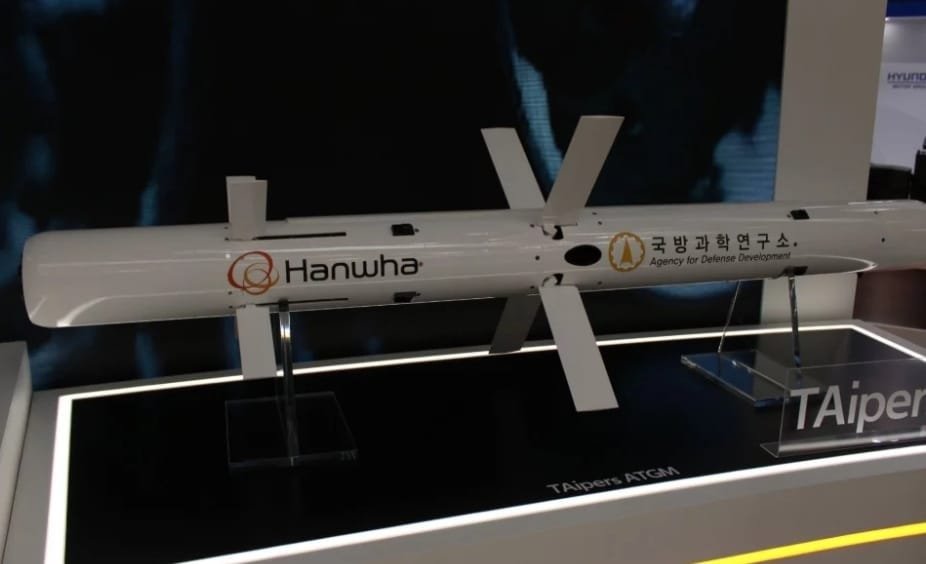
South Korea Presents TAipers Anti-Tank Missile at BSDA 2024
South Korean company Hanwha showcases its TAipers anti-tank missile at the Black Sea Defense & Aerospace 2024 in Bucharest, Romania. Known as “Tank Snipers” or Cheongeom, these missiles are slated for mass production from 2024 to 2031. South Korea had previously announced preparations to mass-produce these locally developed guided anti-tank missiles, TAipers. According to a spokesperson from South Korea’s Defense Acquisition Program Administration (DAPA), the program is allocated a budget of KRW 724.8 billion (approximately USD 550.5 million).
The TAipers is a lightweight, air-launched guided anti-tank missile that locks on before launch (LOBL). The missile system employs a dual-mode seeker that combines visible and infrared imagery, guided by an optical fiber data link. Comprising four main sections—the seeker, propulsion system, control mechanism, and battery, plus an optical fiber cable at the rear—the missile is powered by a smokeless solid-propellant rocket motor. This configuration enables it to achieve a cruise speed of about 200 m/s and a maximum striking range of 8 km. Hanwha claims that the missile can penetrate up to 1,000 mm of rolled homogeneous armor (RHA).
According to the DAPA spokesperson, starting in 2024, the missile will equip the Korea Aerospace Industries (KAI) Light Armed Helicopter (LAH) and the MUH-1 Marineon helicopters of the Republic of Korea Marine Corps (RoKMC). Hanwha has also developed a variant of the missile that can be launched from ground vehicles. However, the decision to mass-produce the missile is currently limited to rotary-wing platforms, as per DAPA’s published information.
This missile is intended to replace the BGM-71 TOW missiles in the military stocks of the Republic of Korea starting in 2024. For comparison, the BGM-71 TOW 2A weighs 22.7 kg, reaches a maximum speed of 310 m/s, has a range of 3.75 km, and can penetrate 900 mm of armor.
The armaments partnerships between South Korea and Romania demonstrate a growing collaboration in the defense sector, aimed at enhancing Romanian military capabilities while opening new markets for advanced South Korean technologies. These partnerships have been evidenced by Romania’s interest in acquiring South Korean defense systems, such as air defense systems and combat vehicles, and by the participation of South Korean firms at the defense expo in Romania to present their cutting-edge technologies. These initiatives are often accompanied by technology transfers and collaborations in production, research, and development, aimed at supporting the local Romanian defense industry while strengthening strategic ties between the two countries.


